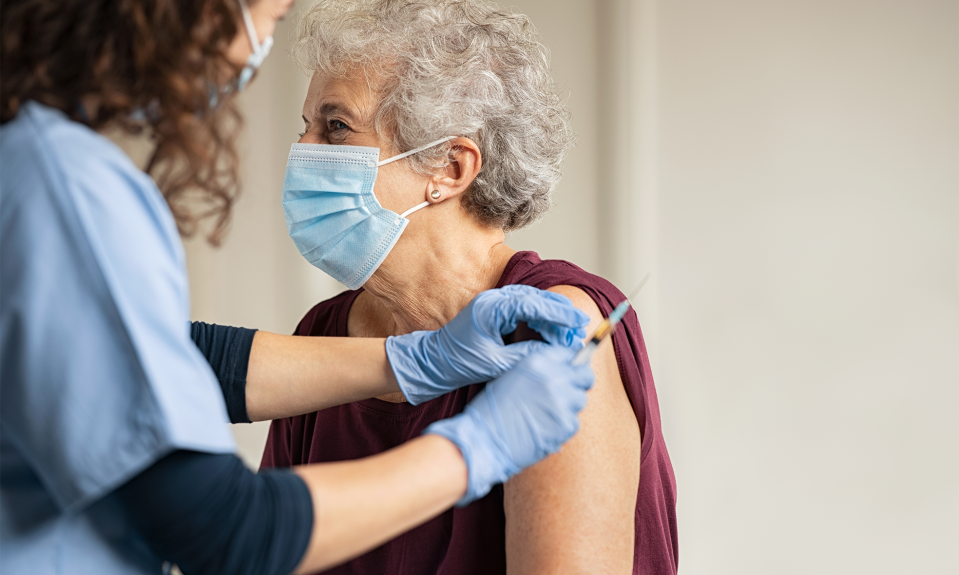What is a “twindemic?” When flu season and spiking COVID-19 cases collide, we face the possibility of dealing with two pandemics at the same time. Last fall and winter, flu cases plummeted to lower than expected numbers, largely because people were practicing basic infection control: washing hands frequently, avoiding crowds and wearing masks when indoors. But as the spring and early summer months left many with a feeling of relief from the pandemic, people ditched their masks and again started enjoying indoor crowded settings, such as restaurants and stores. Meanwhile, the highly contagious delta variant seized this opportunity to spread like wildfire across the country.
Traditionally, annual flu cases hit us in the late fall and early winter. Experts predict that we are primed for a flu pandemic, which usually occurs every 10 years, which at this point is overdue. Although the 2020-2021 flu season resulted in the fewest flu cases ever recorded, the CDC estimates that influenza has resulted in between 9 million to 45 million illnesses, between 140,000 to 810,000 hospitalizations and between 12,000 and 61,000 deaths annually since 2010.
As the weather gets colder, respiratory illnesses tend to spread, since more people are indoors. This fact, along with relaxed COVID safety measures, has led to an increase in respiratory viruses, such as the common cold and respiratory syncytial virus (RSV). As the fourth wave of COVID-19 cases continues to spike, due to the delta variant, the role of vaccinations plays an even more important role in controlling a potential flu/COVID-19 twindemic.
How Can We Avoid a Twindemic?
As many hospitals continue to deal with full intensive care units, we can all do our part to lessen the strain on our health system by trying to stay healthy.
Here are some steps we can take to avoid dealing with a twindemic:
- Get vaccinated. It is not too late to get the COVID-19 vaccine, or a booster shot if you qualify for one. Getting the flu shot this year is very important, since the low number of cases last year suggests we will all have less natural immunity to influenza. You can get the COVID-19 and the flu shot at the same time.
- Masking, handwashing and social distancing are important ways to prevent the spread of respiratory illnesses, including COVID-19 and the flu. Did you notice that you did not get one cold last winter? This is why!
- If you are sick, stay home! Get tested for COVID-19 if you have symptoms including fever, loss of taste or smell, cough or muscle aches. If you live with someone who gets diagnosed with COVID-19 or has had prolonged contact with someone with the virus, quarantine until you are sure you did not catch it from them.
The content of this site is for informational purposes only and should not be taken as professional medical advice. Always seek the advice of your physician or other qualified healthcare provider with any questions you may have regarding any medical conditions or treatments.



